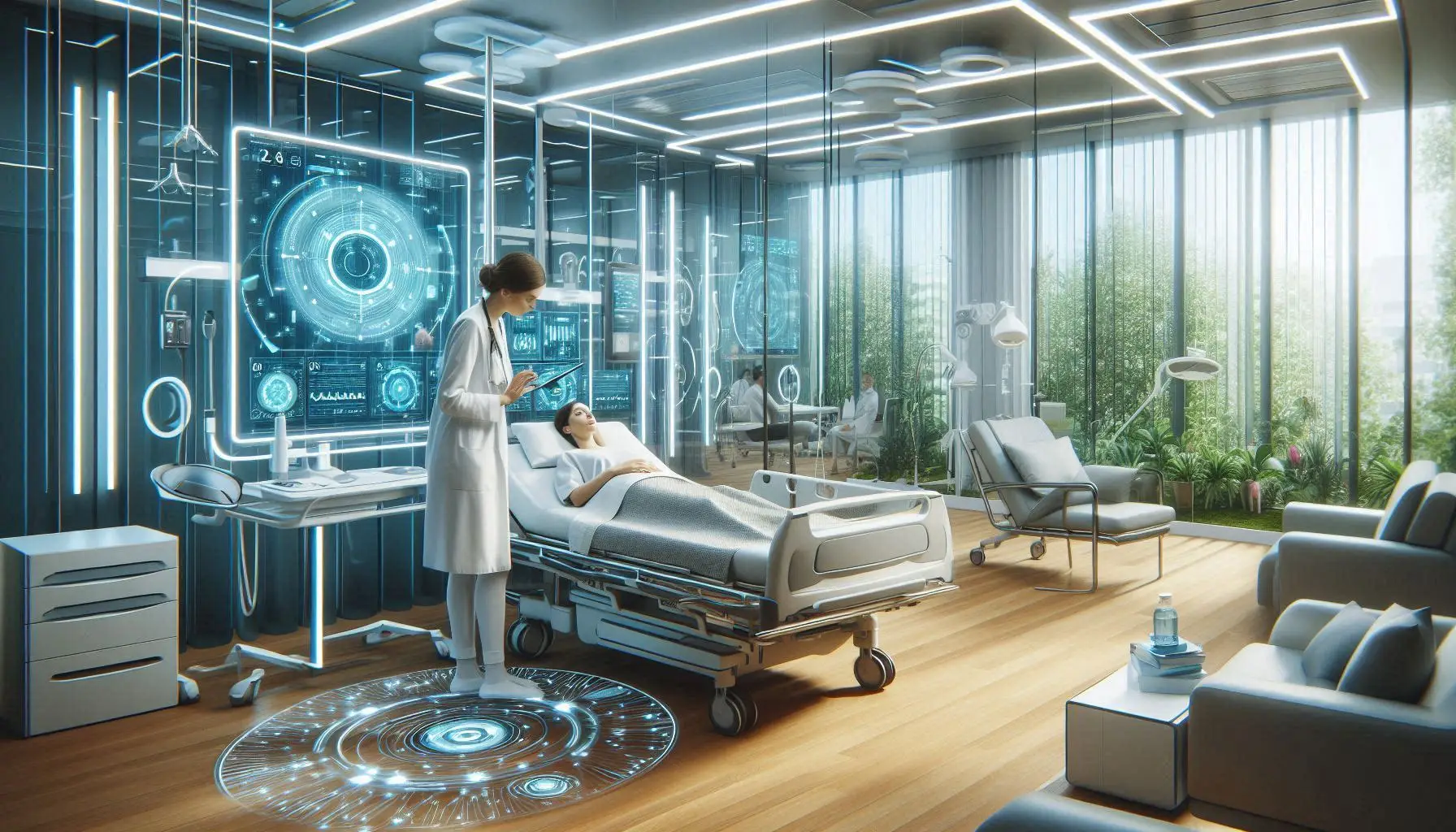How the IoT is Revolutionizing Healthcare
Introduction
In today's fast-evolving technological landscape, the Internet of Things (IoT) stands out as a transformative force, reshaping various industries. Among these, healthcare is witnessing one of the most significant overhauls. IoT, the network of interconnected devices sharing data in real time, is bringing about unprecedented changes in how healthcare providers operate, diagnose, and treat patients. At the forefront of this revolution is Vishvena Techno Solutions, a leader in integrating IoT into healthcare systems.

The Impact of IoT on Healthcare
Enhanced Patient Monitoring and Care
One of the most profound impacts of IoT in healthcare is in the realm of patient monitoring. Traditional patient monitoring methods often require patients to be physically present at healthcare facilities. However, IoT-enabled devices allow continuous remote monitoring of patients' vital signs. Wearable devices, such as smartwatches and fitness trackers, can monitor heart rate, blood pressure, glucose levels, and more in real-time. This data is instantly transmitted to healthcare providers, enabling timely interventions and reducing the need for frequent hospital visits.
Improved Chronic Disease Management
Chronic diseases like diabetes, hypertension, and heart disease require constant monitoring and management. IoT devices facilitate this by providing real-time data and alerts. For instance, a smart insulin pump can automatically adjust insulin delivery based on glucose levels, which are continuously monitored by an IoT-enabled glucose meter. This not only enhances patient outcomes but also significantly reduces the burden on healthcare systems.
Streamlined Operations and Reduced Costs
IoT is also revolutionizing the operational aspects of healthcare. Smart inventory management systems track the availability of medical supplies and equipment, ensuring they are always in stock and reducing wastage. Additionally, IoT-enabled asset tracking can locate essential equipment within a hospital, saving time and improving efficiency. This optimization leads to significant cost reductions, allowing healthcare providers to allocate resources more effectively.
Enhanced Data Collection and Analysis
The vast amount of data generated by IoT devices offers invaluable insights into patient health and behavior. Vishvena Techno Solutions, for instance, uses advanced analytics to process this data, identifying patterns and predicting potential health issues before they become critical. This predictive analysis can lead to early interventions, improving patient outcomes and potentially saving lives. Furthermore, aggregated data can be used for research purposes, contributing to medical advancements and the development of new treatments.
Real-World Applications of IoT in Healthcare
Remote Patient Monitoring
Remote patient monitoring (RPM) is a game-changer for both patients and healthcare providers. Patients with chronic conditions can use IoT devices to send their health data to their doctors without leaving their homes. This continuous stream of data allows for more accurate diagnoses and personalized treatment plans. Vishvena Techno Solutions offers an RPM platform that integrates seamlessly with various IoT devices, providing a comprehensive view of a patient's health status.
Smart Hospitals
IoT is transforming traditional hospitals into smart hospitals. These facilities leverage IoT to enhance patient care, improve operational efficiency, and reduce costs. Smart beds equipped with sensors can monitor a patient's movement, heart rate, and breathing patterns, alerting healthcare staff to any abnormalities. Additionally, IoT-enabled climate control systems ensure optimal environmental conditions in patient rooms, enhancing comfort and recovery.
Medication Management
Ensuring patients adhere to their medication schedules is a critical aspect of healthcare. IoT-enabled pill dispensers and medication management systems remind patients to take their medications at the prescribed times and notify healthcare providers if doses are missed. This reduces the risk of complications due to missed medications and ensures better patient compliance.
Challenges and Considerations
While the benefits of IoT in healthcare are substantial, several challenges need to be addressed. Data security and privacy are paramount concerns, as IoT devices generate and transmit sensitive patient information. Ensuring robust cybersecurity measures is essential to protect this data from breaches. Additionally, the integration of IoT systems with existing healthcare infrastructure can be complex and requires significant investment.
Conclusion:
The IoT is undoubtedly revolutionizing healthcare, offering numerous benefits from enhanced patient monitoring to improved operational efficiency. Vishvena Techno Solutions is at the forefront of this transformation, providing innovative IoT solutions tailored to the needs of healthcare providers. As the adoption of IoT in healthcare continues to grow, it promises to usher in a new era of patient care and medical advancements.
By embracing IoT, healthcare providers can not only improve patient outcomes but also streamline operations and reduce costs. The future of healthcare is interconnected, intelligent, and incredibly promising, thanks to the power of IoT and visionary companies like Vishvena Techno Solutions.
```"If you seek further information on how Vishvena Techno Solutions facilitates the Services on Intellectual Property, kindly visit the provided link and Complete the form."
FAQ's
Q1: What is the Internet of Things (IoT) in the context of healthcare?
The Internet of Things (IoT) refers to a network of interconnected devices that collect and exchange data. In healthcare, IoT devices include wearable sensors, medical equipment, and smart healthcare infrastructure that gather patient data and transmit it for analysis and action.
Q2: How does IoT improve patient care?
IoT improves patient care by enabling continuous monitoring of vital signs and health metrics, facilitating remote patient monitoring, enhancing medication management, and streamlining communication between patients and healthcare providers. This real-time data allows for early intervention, personalized treatment plans, and better management of chronic conditions.
Q3: What are some examples of IoT devices used in healthcare?
Examples of IoT devices in healthcare include wearable fitness trackers, smart insulin pumps, connected blood glucose monitors, remote patient monitoring systems, smart beds with sensors, medication dispensers with reminder features, and IoT-enabled medical imaging equipment.

